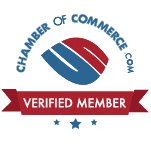Possession Of Controlled Substances in New Havent, CT
Criminal Lawyer For Possession Charges In New Haven
Drug crimes are taken very seriously in New Haven CT. If you are caught possessing a controlled substance, you could be facing serious penalties.
Harsher Penalties
The criminal charges of possession and sale of a controlled substance carry harsher penalties. A person can be charged with possession, possession with intent to sell or to sell within 1,500 feet of a school, or sales that occurred in the vicinity of vehicular traffic.
While your case will be decided in court according to evidence presented by the prosecutor and your legal representation, it is still helpful to understand what drugs are considered controlled substances in Connecticut. This knowledge can help you better prepare for your trial when facing drug charges because depending on which drug you are accused of possessing or selling will determine whether certain factors come into play during your trial.
Types Of Drugs Classified For Controlled Substances
The following will discuss the different types of drugs classified as controlled substances in Connecticut so that you have a clear understanding of what crimes may carry penalties for if convicted.
Possession of a controlled substance refers to the criminal and/or administrative violation of ownership or physical control over a cultivatable, sellable, buyable, transferrable narcotic drug. The penalties resulting from this kind of offense vary depending on the type of controlled substance found in possession.
There are five types of controlled substances:
- depressants (ex. Valium)
- hallucinogens (ex. Acid)
- narcotics (ex. Heroine)
- stimulants (Ex. Cocaine)
- cannabis-related drugs (ex. Marijuana).
All drugs within these categories are considered illegal and include prescription drugs if possessed by an individual who does not have a prescription for that specific type of drug. Drugs such as codeine and morphine may be viewed differentlyDrug crimes are taken very seriously in New Haven CT. If you are caught possessing a controlled substance, you could be facing serious penalties.
Penalties
Possession of a controlled substance is a criminal offense in Connecticut. The penalties for possession depend on the type of drug that is involved. For example, possession of marijuana is punishable by up to a year in jail and a $1,000 fine. Possession of cocaine or heroin can result in up to five years in prison and a $5,000 fine.
Get Help Now
If you are convicted of possession of a controlled substance, you will likely face probation, community service, and/or drug treatment. You may also be required to forfeit your vehicle or property that was used to commit the crime. Learn more about how Rachel Mirsky can help you. Call now.
Call us for a consultation
Mirsky Defense
65 Trumbull St 2nd FL
New Haven, CT 06510

